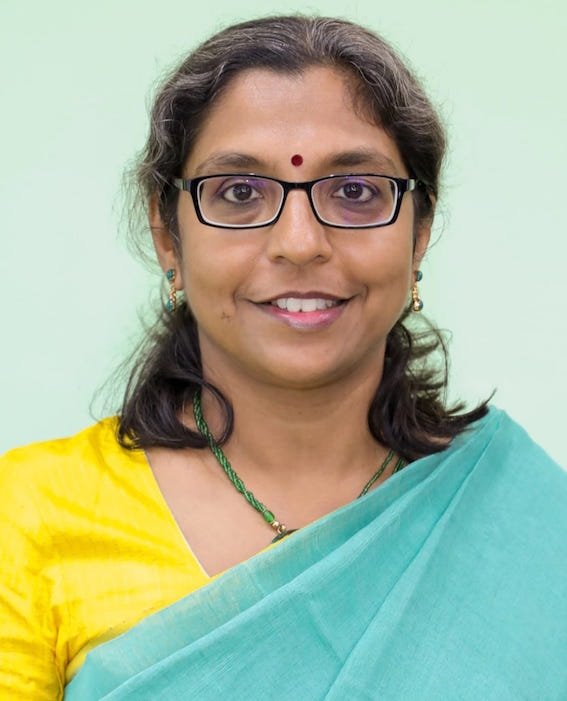"We need to explore new funding models that will allow academia to work more closely with industry"
August 31, 2023 | Thursday | Views
Industry leader Merck has announced its third edition of the Young Scientist Award 2023, to acknowledge the young scientists from academia. A total of 10 scientists will be awarded the 2023 Merck Young Scientist Award; 2 winners each in the fields of biological and chemical sciences and 1 winner in sustainability research. The winners will receive a prize of Rs 350,000 and the runners-up will be awarded Rs 100,000. In coversation with BioSpectrum, Dr Radha Rangarajan, Director of CSIR – Central Drug Research Institute (CDRI), one of the jury chairs for Merck Young Scientist Award 2023 talks about the enriching relationship between the academia and industry, much required for the growth of the life sciences sector in India.
What are the key research highlights/projects at CDRI that are involving industry partnership currently? Please share details.
CSIR-CDRI was set up with a mandate to develop drugs, diagnostics and process technologies that address India’s unmet clinical needs. Since its inception in 1951, CDRI has transferred more than 80 process technologies and developed 12 drugs all the way to market in partnership with industry.
We have several ongoing partnerships with industry: S-007-1500 (outlicensed to Troikaa Pharmaceuticals) for fracture healing and entering Phase 1 studies; L-Ormeloxifene (outlicensed to Cipla) for female contraception and entering Phase 1 studies and Umefenovir (outlicensed to Medizest Pharmaceuticals) for Covid-19 and awaiting marketing authorisation. We are also developing a phytopharmaceutical drug derived from Withania somnifera for fracture healing in collaboration with Pharmanza Pvt Ltd.
Besides drugs, we have developed research reagents such as a DNA dye GreenR, and a universal quencher for RT-PCR reactions and licensed them to Biotech Desk Private Limited. Furthermore, we work with several small and medium sized pharma companies that seek our drug testing and formulation development services through the Common Research and Technology Development Hub.
What are the current academia-industry gaps in the field of life sciences, and how should those be addressed?
Academia-industry partnerships are very enriching for both sides when they are successful. Yet, such linkages are an exception rather than a norm. Common reasons such as the lack of alignment between the needs of industry and academia’s offerings and low trust between stakeholders are often cited.
To address the gaps, one needs to understand the life sciences industry landscape in India. Biotech and pharma industries are focused on biosimilars and generic drugs and have built up solid capabilities in research and development to support these needs. However, the life sciences industry will need to do more if it wants to take a seat at the global innovation table. Companies need to engage in research driven cutting edge solutions and products. Considering that such approaches are high risk, shareholder/investor support to companies may be difficult to secure. This is where academia, with its appetite for novel and pioneering research plays a role. Industry should see academia as laboratories from where future products can emerge without having to invest in much of the high-risk early stage research. For such a model to become effective, academia must align its research with what industry is willing to bet on. This requires constant dialogue, industry-academia conclaves, ideation workshops and conferences through which common areas of interest are establish. In addition, academia needs to undertake the necessary studies to establish proof-of-concept and have the necessary data for industry to be able to make a decision. Finally, we need to explore new funding models that will allow academia to work more closely with industry in areas of common interest.
Is there a lack of skilled biologists or workforce for drug discovery in India?
This is not the case. Every year, we have a large number of biologists and chemists complete their PhDs. These individuals can learn to work in a drug discovery environment with some training.
How is the Merck Young Scientist Award opening new avenues for academic researchers?
The Merck Young Scientist Award aims to identify exceptional young scientists whose work has the potential for impact in the fields of biological sciences, chemical sciences, and sustainability research. For scientists who are inclined towards translational research and development, this is an opportunity to showcase their work and be recognised.
What are your expectations from the applications being received for the Merck Young Scientist Award?
Researchers and scientists with less than 10 years of post-Ph.D research experience, working in Indian institutes are eligible to apply. The past competitions have seen a large number of applications from across India. There have been many worthy applicants and several were recognised in 2019 and 2021.
The jury panel will look at four parameters: originality, innovation, scalability, and implication on human life. Scientists applying should showcase their best science while connecting their work to problems in the real world. In addition, effective communication is key to convincing the jury about their achievements.
Dr Manbeena Chawla
(manbeena.chawla@mmactiv.com)









